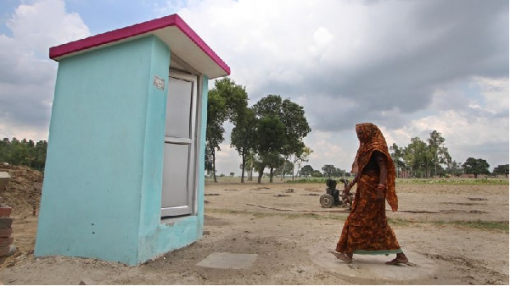
India’s poor hygiene attitude is deeply influenced from their discriminatory caste system. Providing access to clean water is another challenge that requires attention.
Almost half of India's 1.2 billion people, especially those living in villages, lack flush toilet facilities inside their home and have to defecate in the open or in dry unhygienic pits. This makes for more than 72% people in rural areas.
In the Baseline Survey Government Report of 2012 by the Ministry of Drinking Water and Sanitation, states like Odisha (88%), Bihar (79%), Jharkhand (72%), Jammu and Kashmir (75%), and Telangana (74%) recorded a high percentage of individual households without toilets. The practice has ultimately given rise to deepening social problems in India.
On July 4th 2015, a 17-year-old teenager in Dumka, Jharkand, who was ashamed of defecating outdoors allegedly killed herself after her parents denied her repeated request to build a toilet. Last year, two teenage girls in Katra Badaun District, Uttar Pradesh, were found allegedly gang raped and hanged from a tree. It was reported that the girls had gone to relieve themselves at night in the open and had not returned.
Open defecation is a major reason for harassment among adolescent girls and women. Deforestation has made it harder to find places for open defecation in villages. Young girls and women are trying to find their voice in an attempt to bring attention to this issue.
On 15 August 2014, Prime Minister Narendra Modi in his first Independence Day speech called for a ‘Swachh Bharat Abhiyan’ (Clean India Mission), focused on the importance of establishing proper sanitation facilities in every school in India. He said:
This is a shame for a country that has global aspirations and that the lack of sanitary conveniences is demeaning to women.
Some regions of India have taken this discourse more seriously than others.Ludhiana is set to have 100 villages free of open defecation under this scheme by 2017. Previous campaigns like ‘Nirmal Bharat Abhiyan’ tried to create the ‘demand of toilets’ but were largely unsuccessful.
Modi’s initiative has brought this pressing concern back into the mainstream narrative. Reactions on social media are evident of this rising awareness:
During a conference organised by the University of Chicago Centre in New Delhi,Nitya Jacob, the head of policy at water and sanitation NGO WaterAid, advocating “mainstreaming” water, sanitation, and hygiene (WASH) in Indians’ daily lives. People are more likely to resort to defecating in open despite well- constructed toilets because it is considered healthier. Providing access to clean water is another challenge that requires attention. Experts are therefore sceptical that building more toilets alone will bring a change in sanitary habits among communities. In an article for Huffington Post India, Jacob, alongside Amitangshu Acharya, the program director for aid and development software company Avko's Asia hub, point out a different side to this problem:
Most engineers in government departments are men, while women are the demographic that predominantly support the building of toilets. Male engineers tend to focus more on technical accuracy than on women's (and other users’) need for design that caters to their privacy and menstrual hygiene management needs.
They further add that the quality of toilets built make it impractical to use:
The angle of the toilet pan is not steep enough, or the pipe that connects the pan to the pit is not sloped properly, or the pit collapses on its own weight.
India’s poor hygiene attitude is deeply influenced from their discriminatory caste system. Due to the lack of drainage system, manual scavenging (cleaning human waste by hand) was designated to the lowest caste called “the untouchables”, a practice that is very much prevalent among upper castes to this day. Sameer Kamat sheds light on this matter:
There are documented cases of manual scavenging even in big towns/villages. For example in a sample survey in Delhi in 2008, 13 people working as manual scavengers were identified. Another example is Meerut, one of the prime towns of UP, only 60kms from the National Capital. During a Sample Survey in Meerut in 2010, 392 Manual Scavengers were documented.
While finding the correlation between religion and toilet use in India, Jacqueline Cieslak, PhD scholar, argues about the innovative ways adopted to abstain people from urinating in public:
[…] the practice of affixing pictures of gods on the walls of public buildings in India to prevent men from urinating on them. This is a kind of proxy faith in other people’s beliefs and their readiness to change their behaviour for those beliefs — in other words, one doesn’t have to believe in Hindu gods to believe that people who do believe in them won’t urinate on them.
Given the facts, subsequently, one can conclude that upper castes are more likely to avail the benefits of this scheme. Therefore, there is a need to instil awareness among communities and not just individuals on the importance of latrine hygiene to bring a change in perception. This would require more funds allocated to “creating awareness” than “creating demands for toilets” in ‘Swachh Bharat Abhiyan’ programme along with assiduous monitoring to evaluate results.
This article has been republished from Globalvoicesonline.org